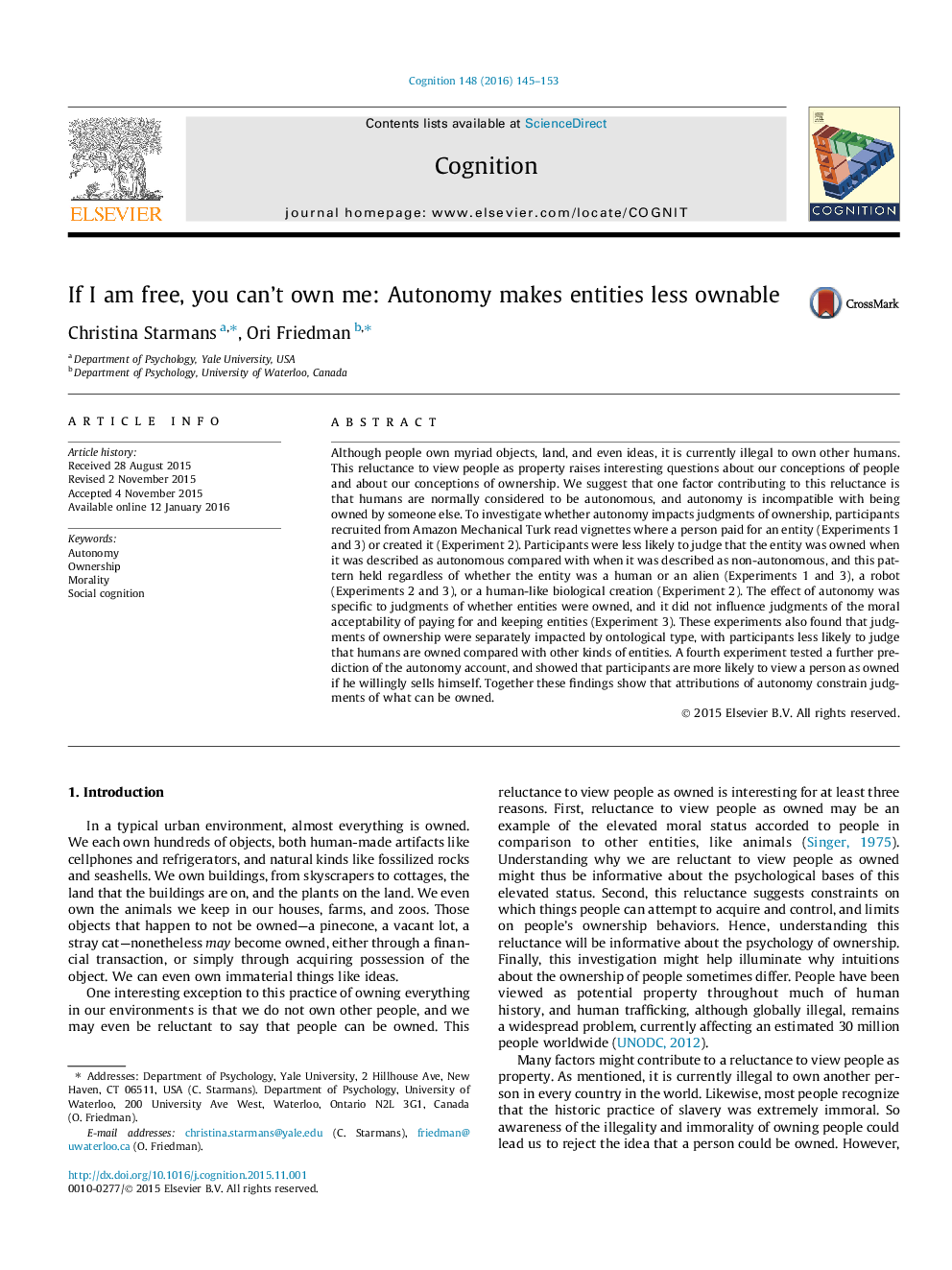| کد مقاله | کد نشریه | سال انتشار | مقاله انگلیسی | نسخه تمام متن |
|---|---|---|---|---|
| 926335 | 1474119 | 2016 | 9 صفحه PDF | دانلود رایگان |
• We examined judgments about the ownership of humans and other animate entities.
• Autonomous entities were judged less ownable than non-autonomous entities.
• Intelligence, language, and emotional capacity did not affect ownership judgments.
• Participants are more likely to view a person as owned if he willingly sells himself.
• Attributions of autonomy constrain judgments of what can be owned.
Although people own myriad objects, land, and even ideas, it is currently illegal to own other humans. This reluctance to view people as property raises interesting questions about our conceptions of people and about our conceptions of ownership. We suggest that one factor contributing to this reluctance is that humans are normally considered to be autonomous, and autonomy is incompatible with being owned by someone else. To investigate whether autonomy impacts judgments of ownership, participants recruited from Amazon Mechanical Turk read vignettes where a person paid for an entity (Experiments 1 and 3) or created it (Experiment 2). Participants were less likely to judge that the entity was owned when it was described as autonomous compared with when it was described as non-autonomous, and this pattern held regardless of whether the entity was a human or an alien (Experiments 1 and 3), a robot (Experiments 2 and 3), or a human-like biological creation (Experiment 2). The effect of autonomy was specific to judgments of whether entities were owned, and it did not influence judgments of the moral acceptability of paying for and keeping entities (Experiment 3). These experiments also found that judgments of ownership were separately impacted by ontological type, with participants less likely to judge that humans are owned compared with other kinds of entities. A fourth experiment tested a further prediction of the autonomy account, and showed that participants are more likely to view a person as owned if he willingly sells himself. Together these findings show that attributions of autonomy constrain judgments of what can be owned.
Journal: Cognition - Volume 148, March 2016, Pages 145–153
